Share with food-insecure households
sharing increases Divine Grace
archives
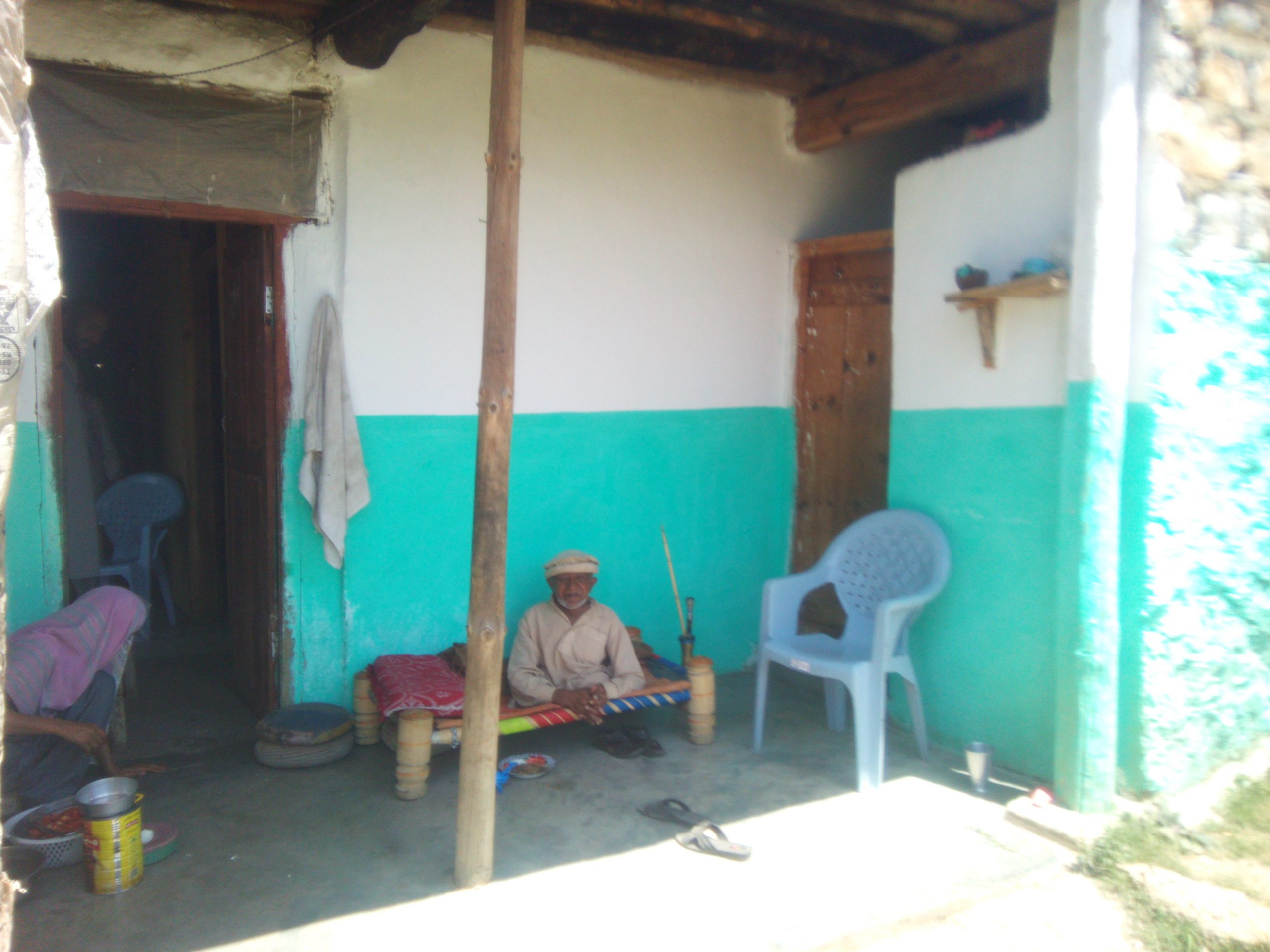
Visit to Ghulab Jan's home-KPK
About Ghulab Jan
Meet this father of five. Like himself, his two daughters also have a hereditary disease causing three in one family to be paraplegic. One of the sons stays at home caring for them, the other is a day laborer and earns approx. PKR 8000/month. It is evident, the healthcare needs of the family cannot be met.
Having seven members survive on this income is astounding.
You can see from the beneficiary form that we have by now a relationship that goes back to 2017. Our interactions with the father and daughters over this time has taught us what reliance on God means. They never complain and have gratitude for what they have. We continue to be amazed by their resilience, their faith, hope, courage in the face of persistent adversity. The stability of character we find in this family is often not found in affluent households.
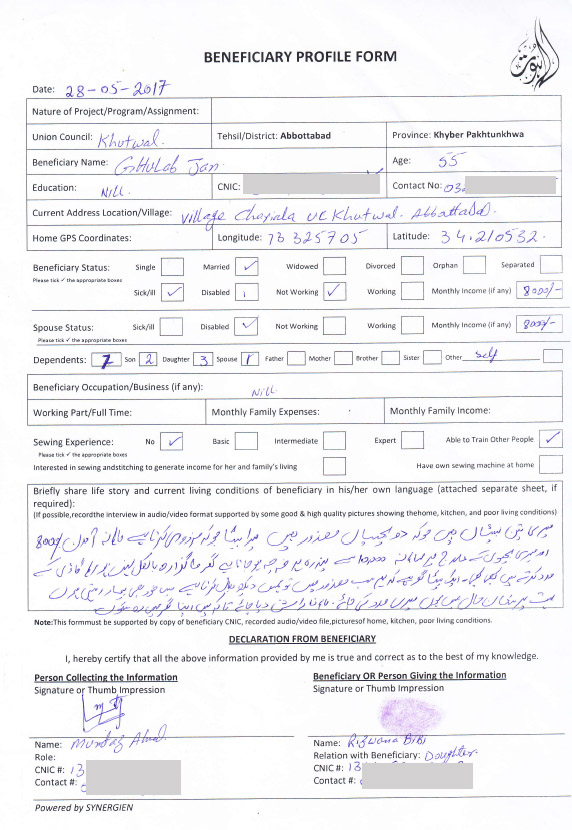
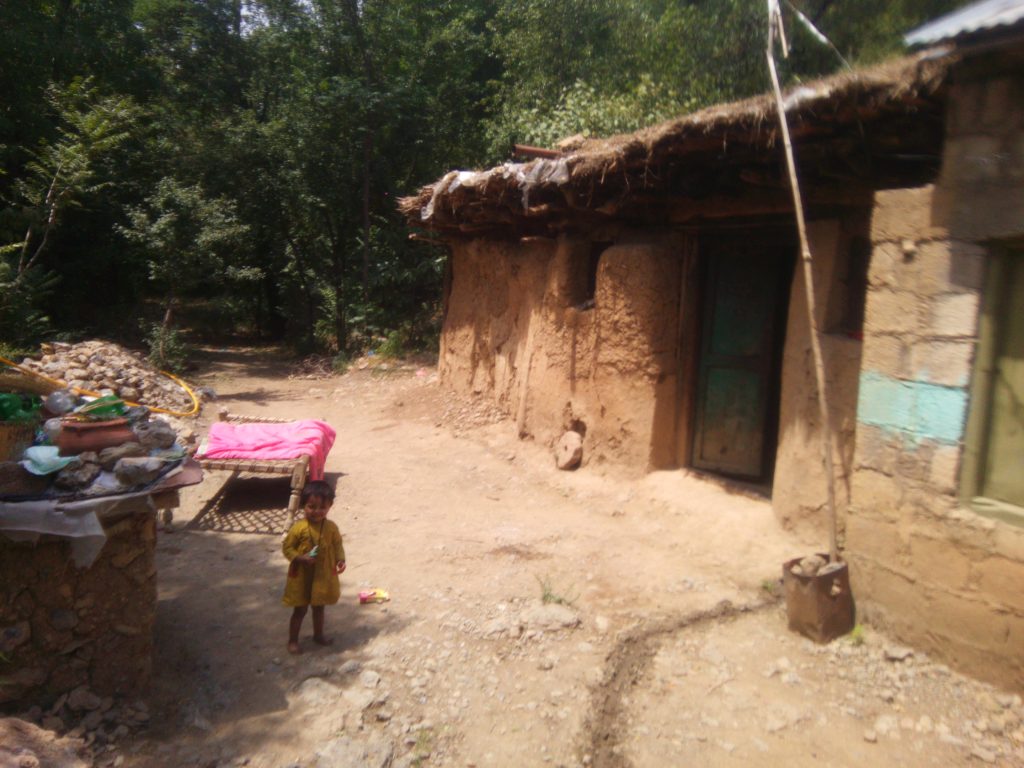
Visit to Kiran bibi and Mahroof Jan homes-KPK
About Kiran Bibi and Mahroof Jan
The pictures below show process we follow in visiting the home, check on their welfare once a month.
A content simple life
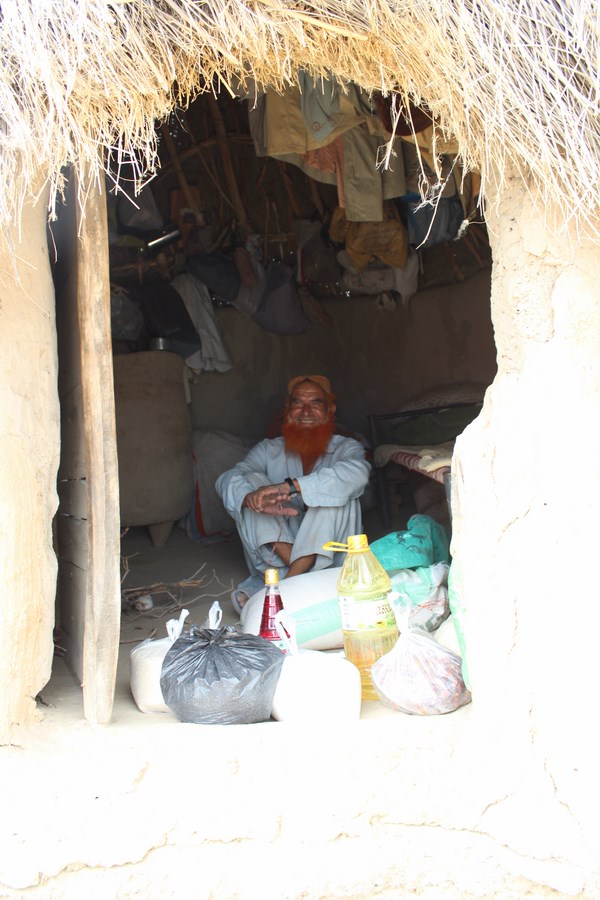
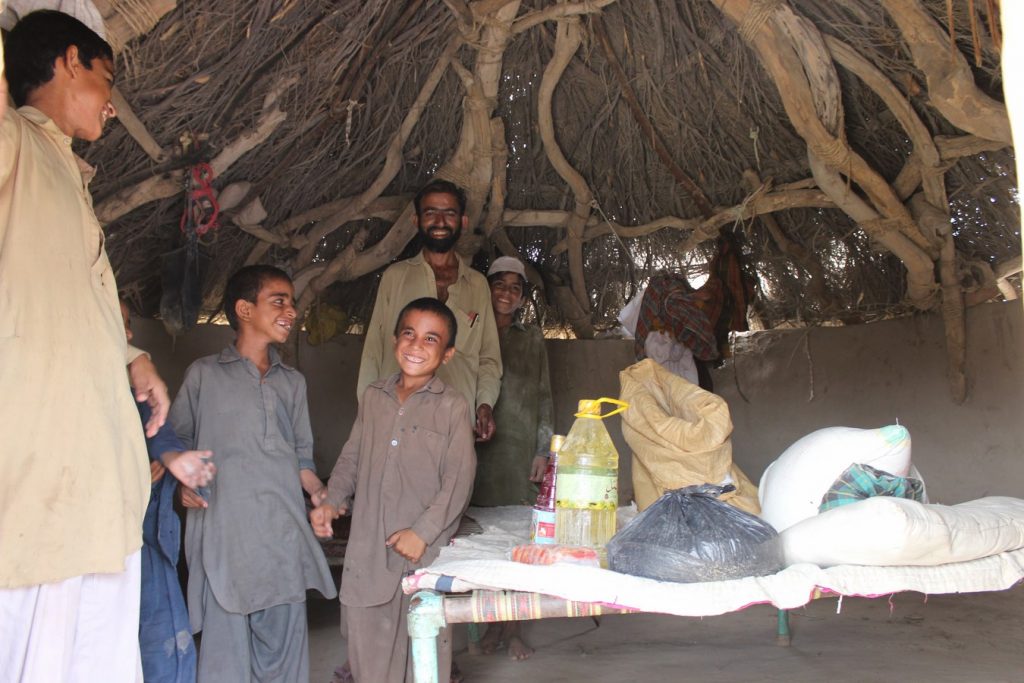
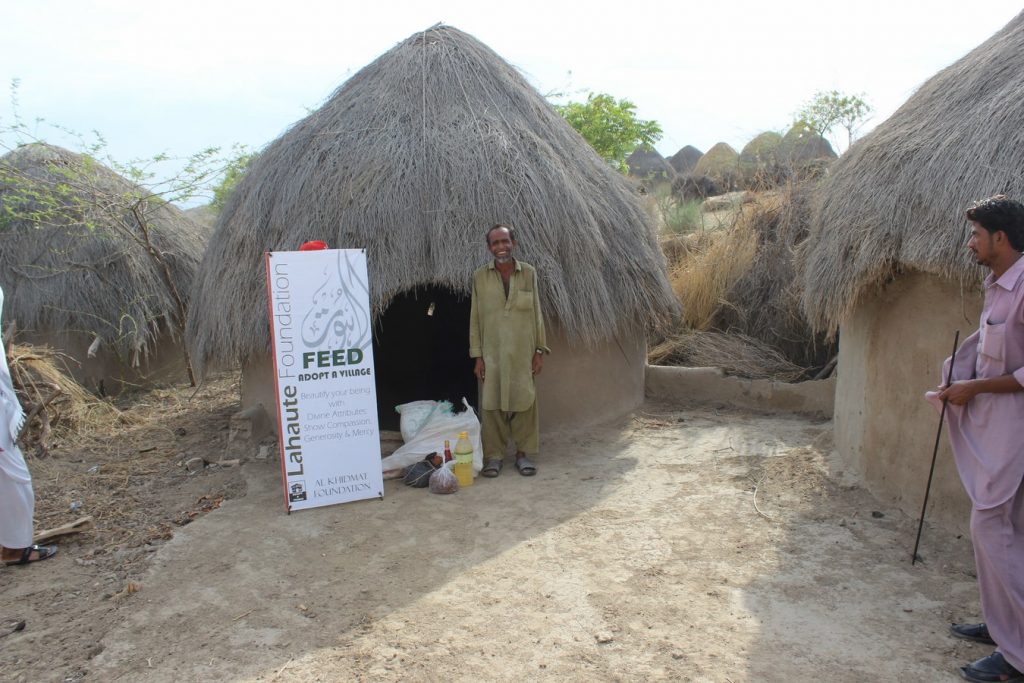
Sharing with families in Gharo, Sindh
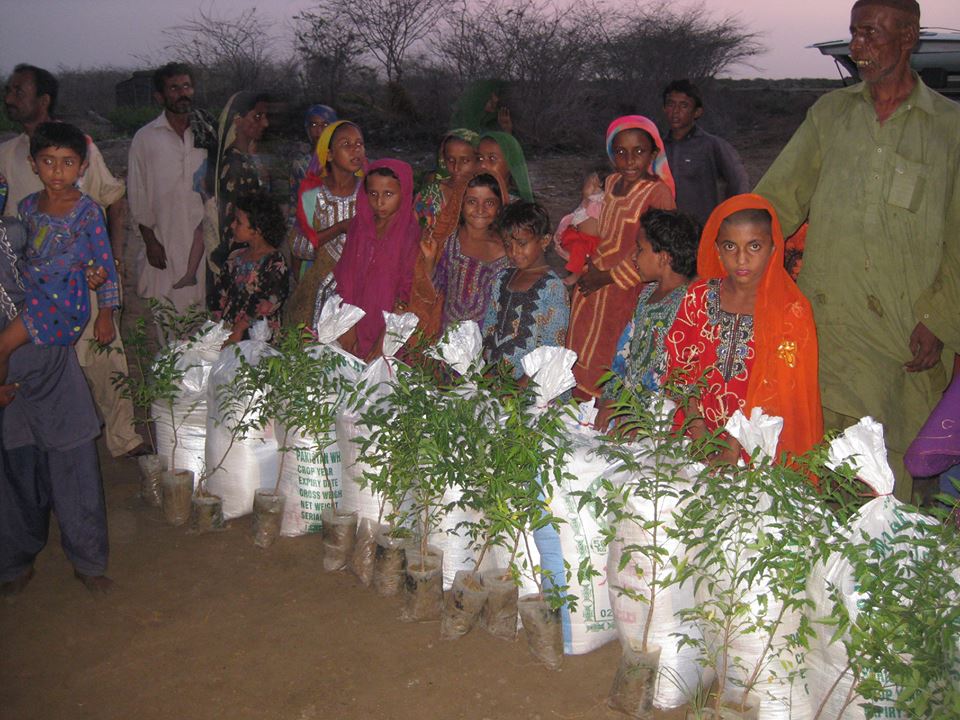
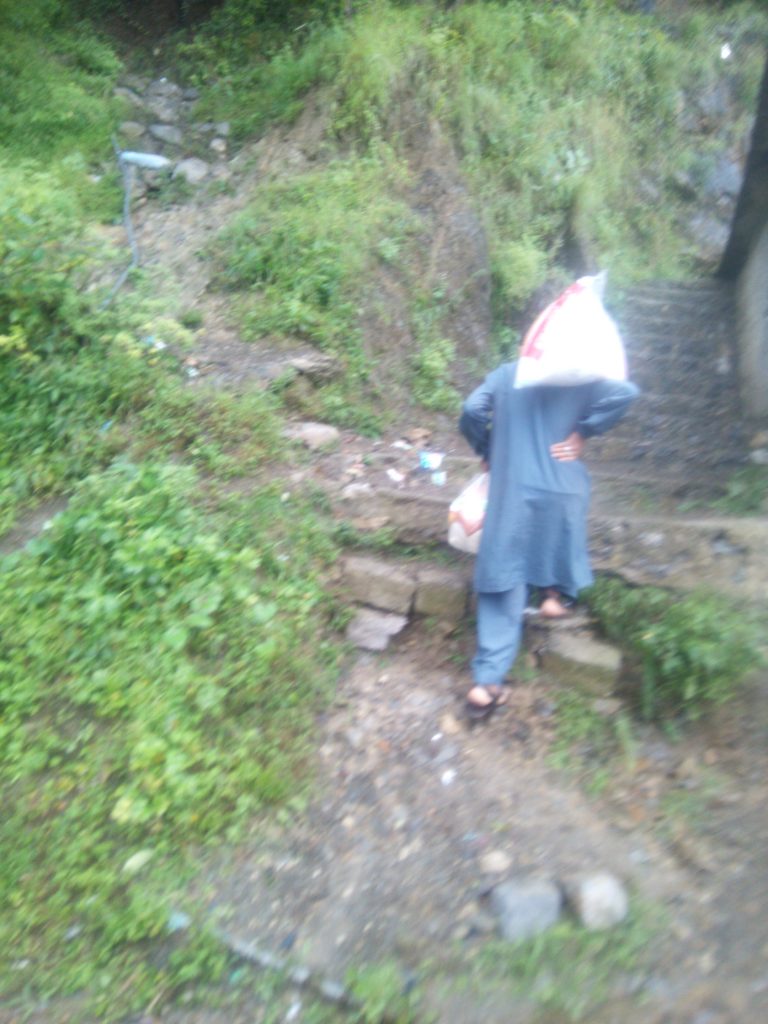
Delivering food ration to Sarwar Jan's home-KPKf
About Sarwar Jan
Sarwar Jan is a widow in her late 70’s with three adult children who have disabilities from birth. She lives in a home high in the mountainous Thandiani area in KPK. The terrain to her house is hard and requires considerable effort and time to get there from the main road way below. Households like hers where there is no source of income, require our compassion through regular monthly food and monetary assistance.
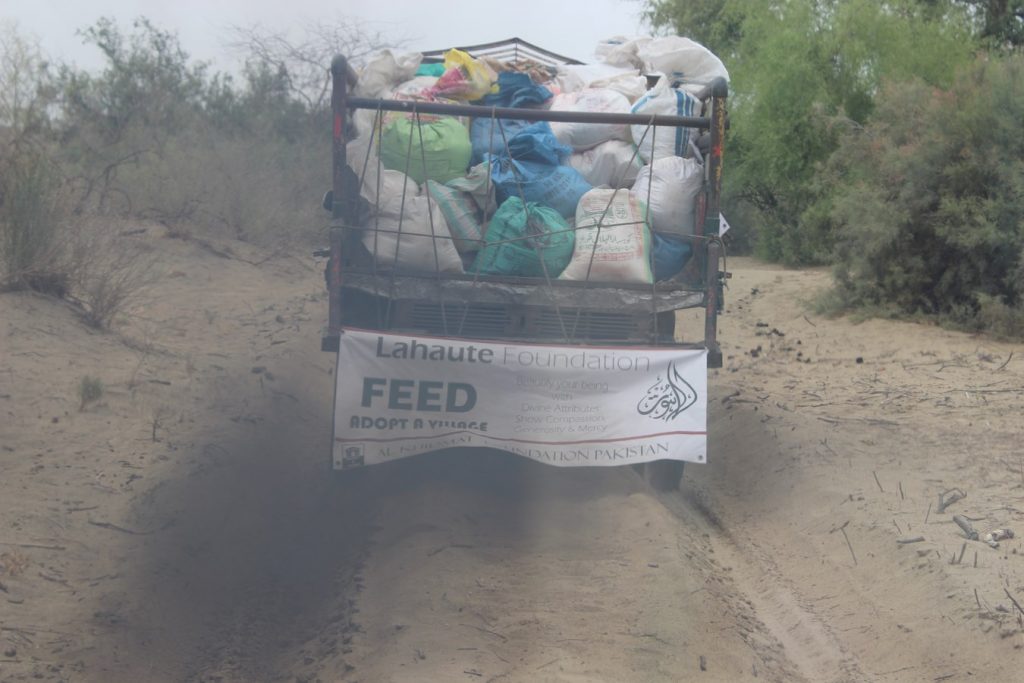
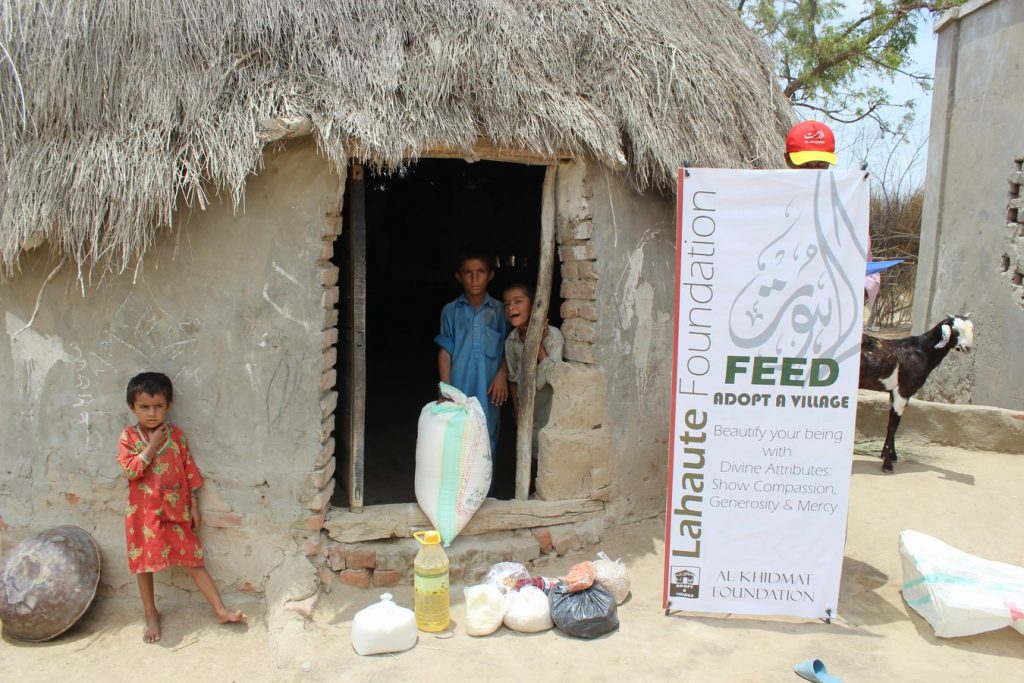
Journey to Jhool Sharif!
During Ramadan, extra efforts are made to reach families in need of our care. Sharing one such journey in 2014 with food ration to families in Jhool Sharif in rural Sindh.
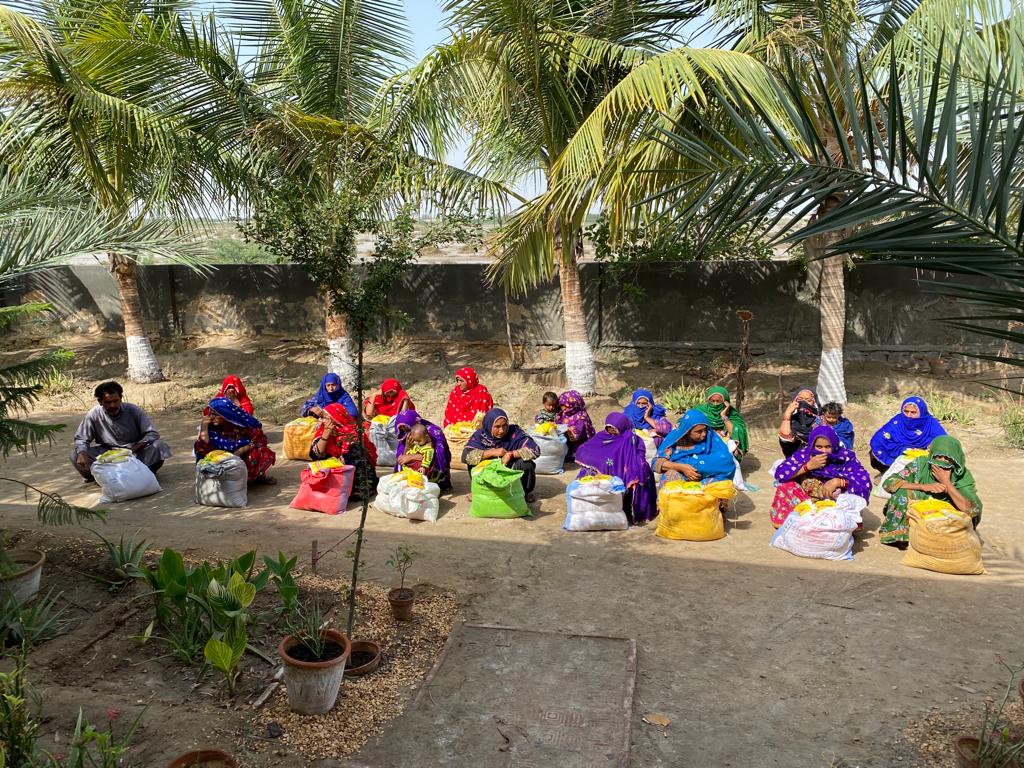
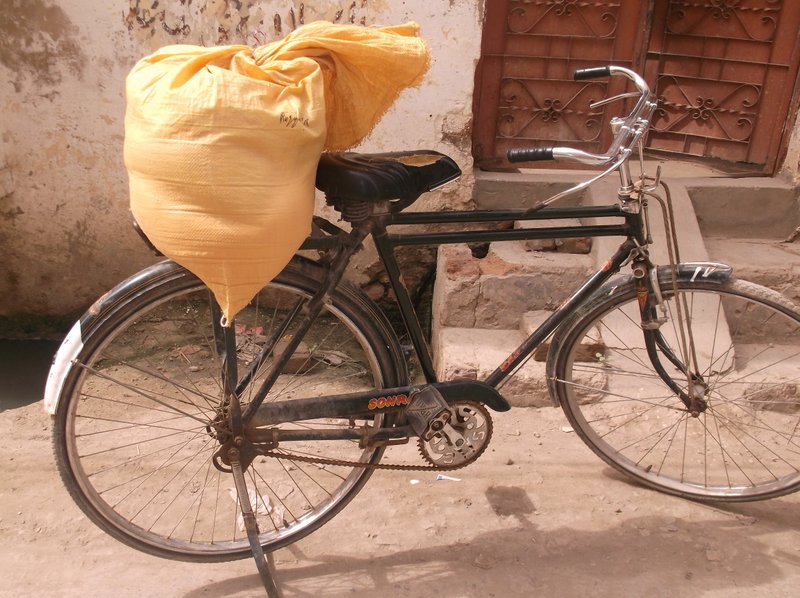
Door to Door in Dakhan
An inspiring student, Abdul Haseeb, leads food ration distribution for Lahaute in Dera Ismail Khan.
Abdul Haseeb took the initiative to identify the most underserved in his community in Dakhan, Dera Ismail Khan, Pakistan. He visited homes to assess their needs. Several he knew through his mother. Most of them were widows raising families, making a living, sewing clothes, or selling food items. Indeed, not enough work to get by comfortably.
Abdul went door to door delivering rations while he was fasting during Ramadan. He was an inspiring young man who continued his studies, getting an MBA at Islamabad University with excellent grades. He wanted to continue pursuing a career serving those in need.
A visit to Bannu-2017
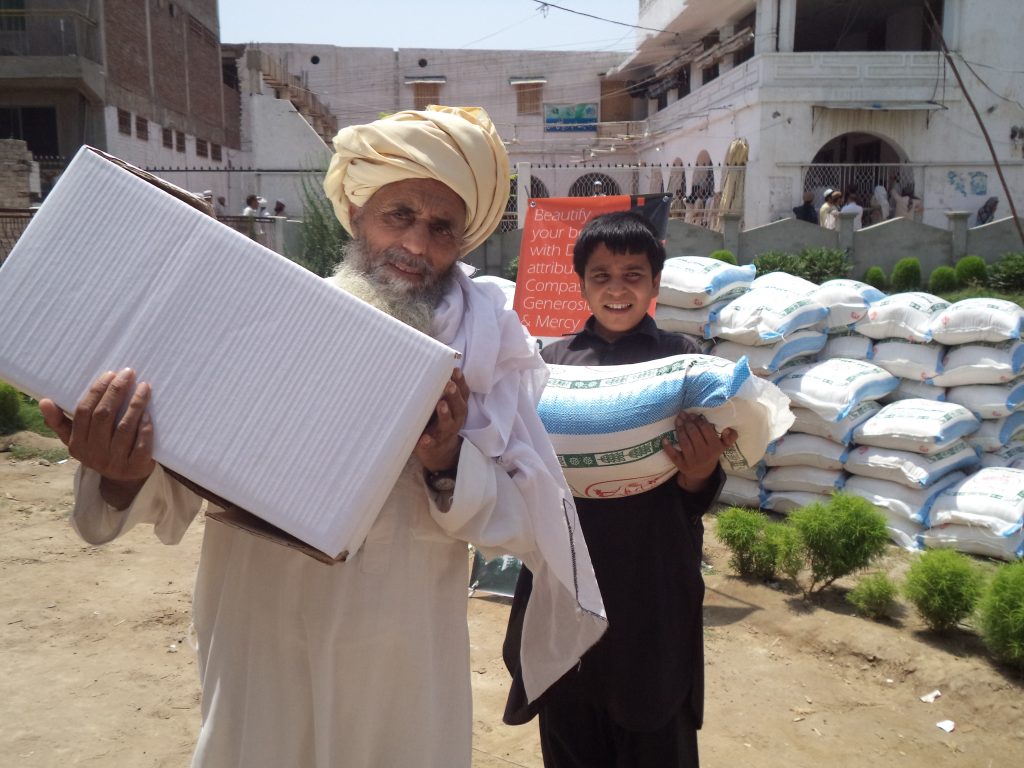
Sharing the journey of taking food ration to IDPs in Bannu
WHY THE NEED?
- Rapid inflation
- Lack of economic opportunities
- Lack of government welfare support systems
- Inequities in access to quality education
- Disempowered women
- Low literacy
- Corruption
- Non functioning government institutions
The correlation of food insecure households to the above mentioned factors is evident. Hence we focus our efforts in areas that are least developed, which are the consequence of all of the factors noted above.
FAQ
Most frequent questions and answers
Food insecurity is defined as a household-level economic and social condition of limited or uncertain access to adequate food.
Food insecurity may be long-term or temporary. It may be influenced by a number of factors, including income, employment, race/ethnicity, age, gender, illness, and disability.
With gender-specific roles death of the male member, who is usually the sole breadwinner, leaves women and orphaned children at very high risk of malnutrition.
We have found households with just the elderly in impoverished areas to be extremely vulnerable to persistent hunger.
High unemployment rates and chronic illnesses among low-income populations make it more difficult to meet basic household food needs.
- By supporting through our monthly food ration program. Either by giving food ration items bought or/and by giving cash.
- By assisting with starting a micro business, either by lending micro loans or advancing one-time monetary help for individual entrepreneurs.
Yes, of course, we will do our best to accommodate your wish. We understand the connection to a particular community/land and the need to give back to better their lives. Once you request, we will get back to you with an identified household in the area of your preference.
Please see the breakdown of a package to a family with costs here.
Please see the process here.
We can relate to the fact that when one gives, one wants to see that the giving reaches the people intended. We are glad to share visuals that will show your generosity reached the hands it was meant to reach so that it warms your heart.
The best of you are those
who feed others.
who feed others.
Plant Good
Prophetic hadith
the process
village survey
Work begins by identifying the communities with the most need. Often we are led by someone coming in our journey to lead us there. Field workers visit the village/community to ascertain the ground realities and the life situation of households in most need.
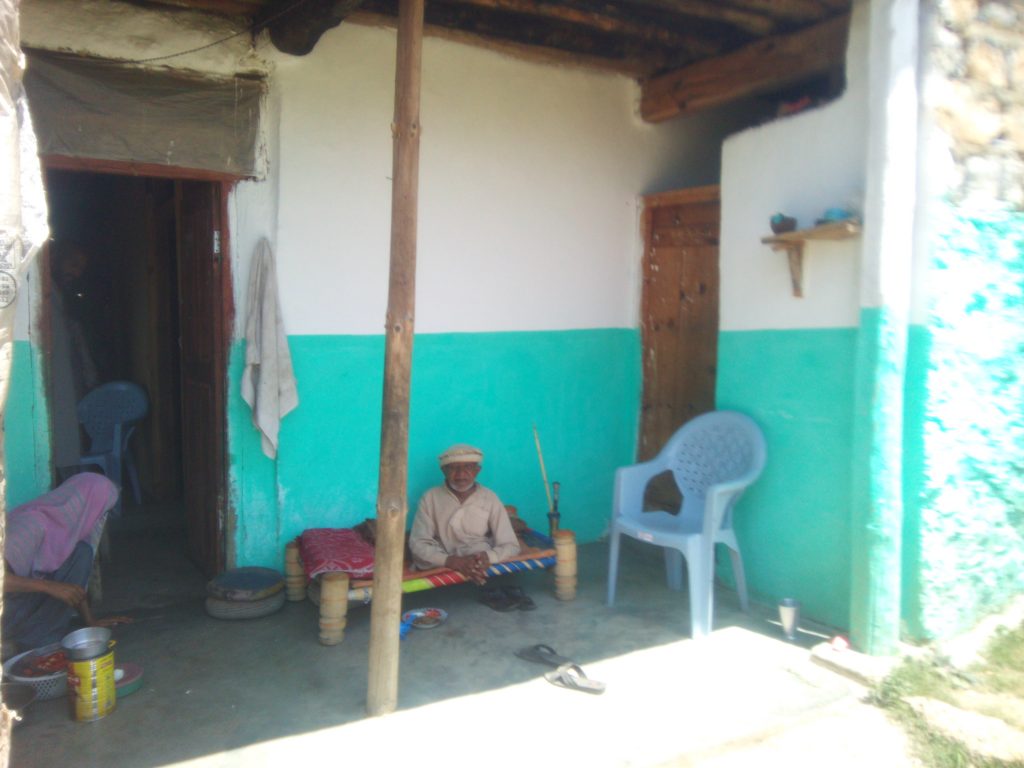
community engagement
Community engagement matters. To build trust, understand their needs better and ensure we become a means of benefit not harm.
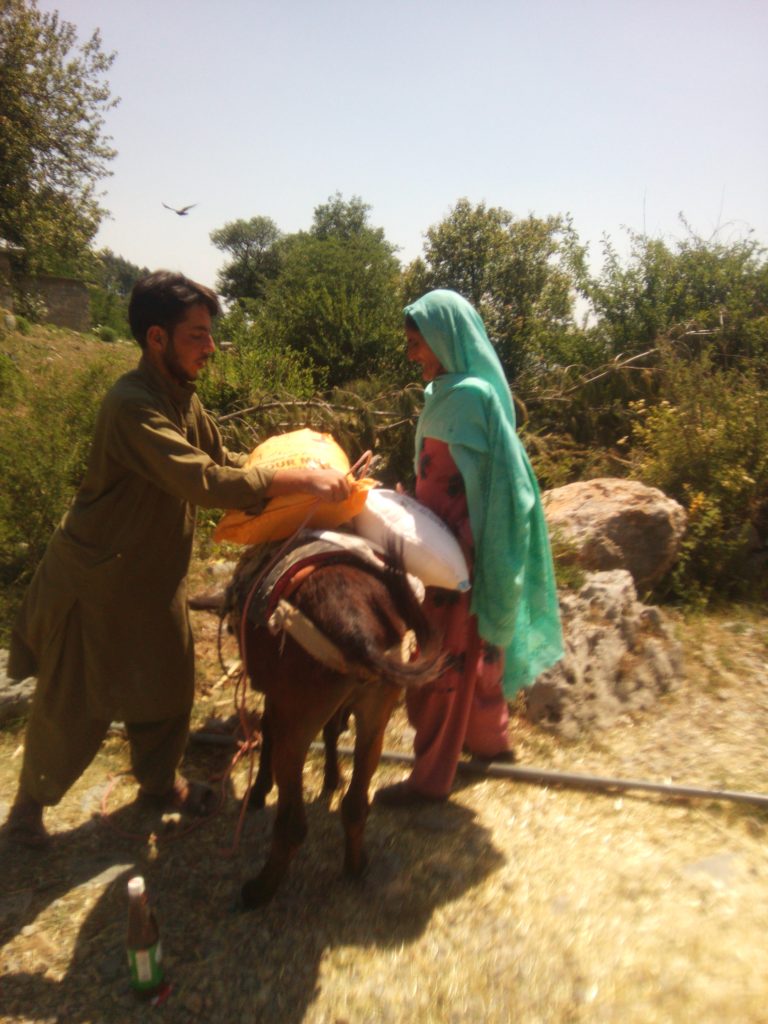
household assessment
As part of case management, field worker interviews the food insecure household members. Information is recorded in ‘Beneficiary forms’ that include all pertinent questions to avoid personal discretion affect assessment and final determinations.
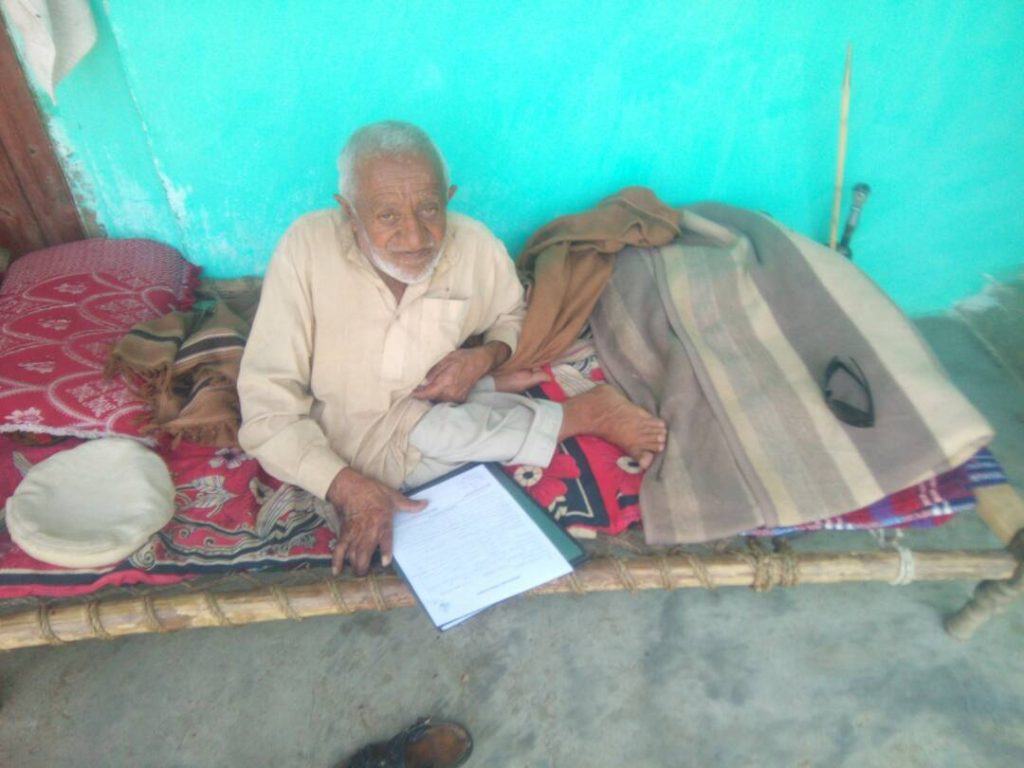
identifying the most food insecure households
We identify from the data collected the most vulnerable and food insecure households. They form part of those, we find ourselves duty bound to assist.
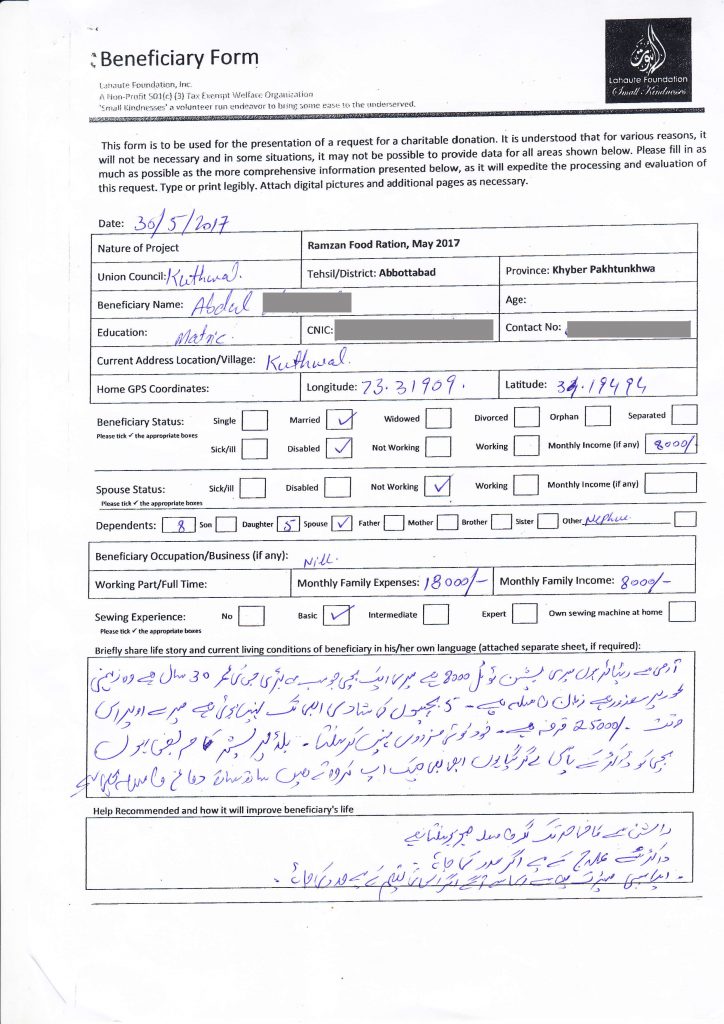
Giving
Your giving reaches these most insecure households in the form of food ration or/and monetary assistance.
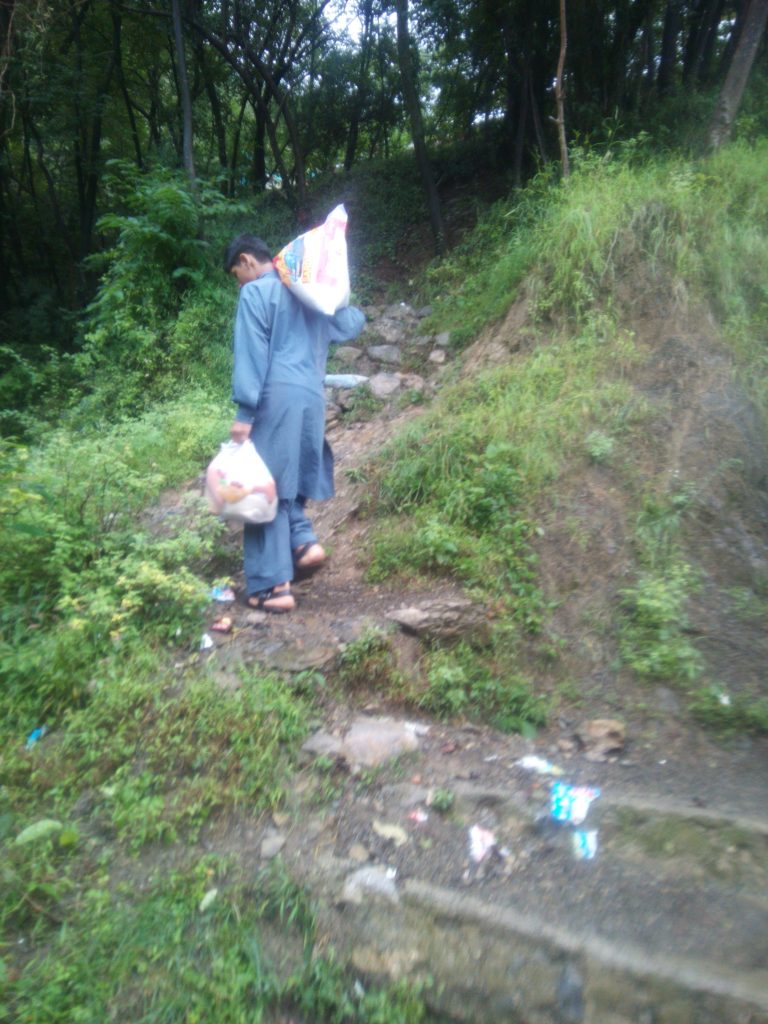
monitoring & care
Since the assistance is monthly till the situation changes, written and visual records of monthly giving is followed. Every month we also get the chance to inquire into their well being to ensure the help is bringing ease and if other challenges have arisen.
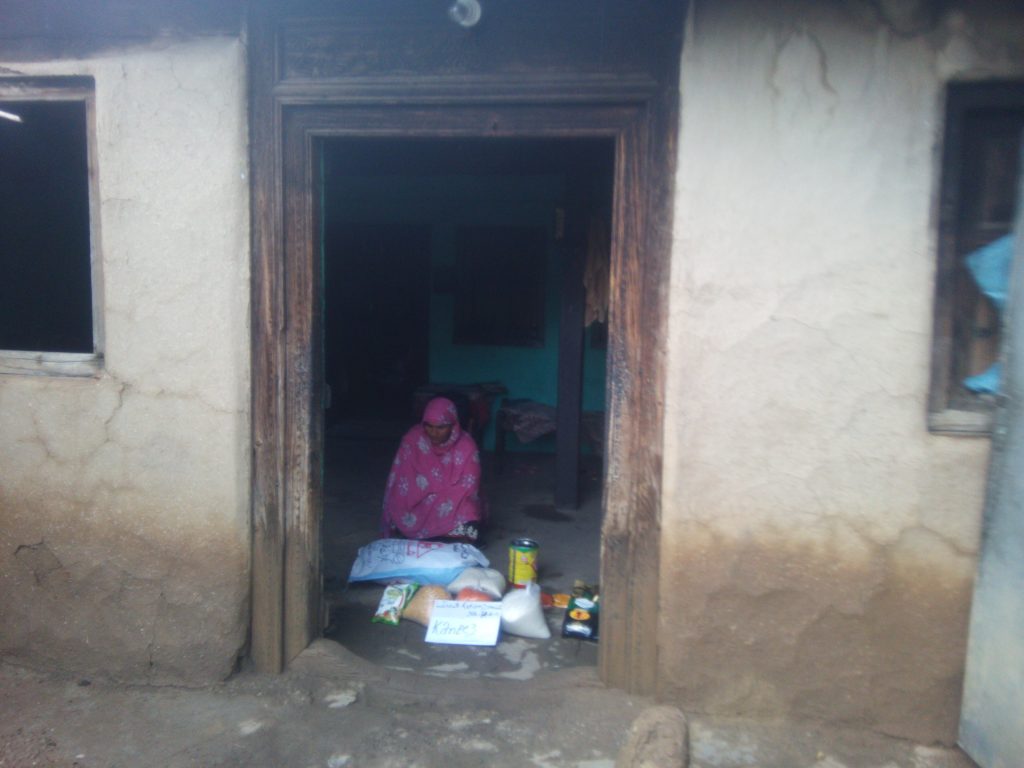
tBreakdown of an average food ration package
Food ration cost breakdown
4-6 in a family
Cost: USD 40:00
Depending on the situation/logistics/preference of the beneficiaries, we opt to give cash instead of goods so they can purchase what they need.
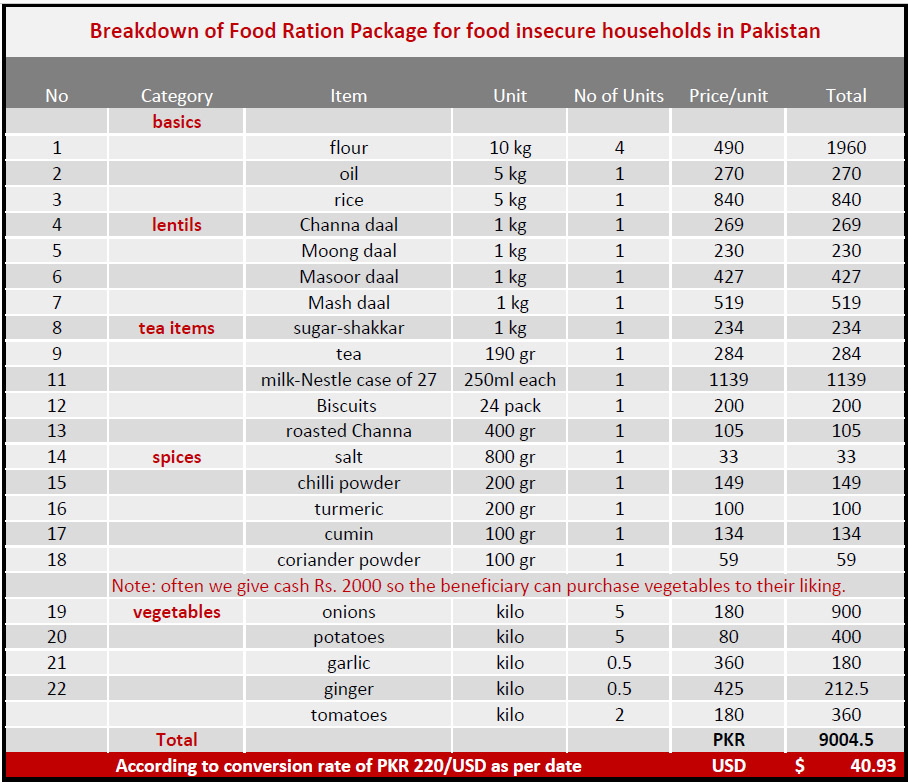
ABOUT US
Share food with a family. Pledge support for monthly food ration package.
When requested we provide visuals and feedback to show your generosity reached the intended family. There are young widows raising children with no regular source of income, elderly and those with disabilities that are in need of our compassion.

QUESTIONS?
Whether you’re curious about a program, require more information, or want to simply learn more about our work, we are happy to hear from you and answer your inquires.
